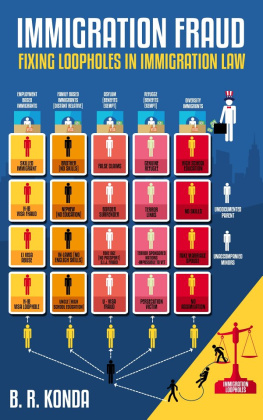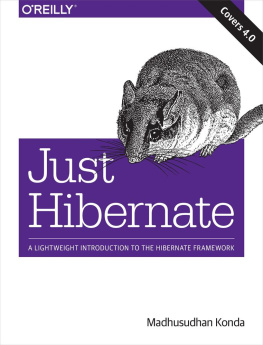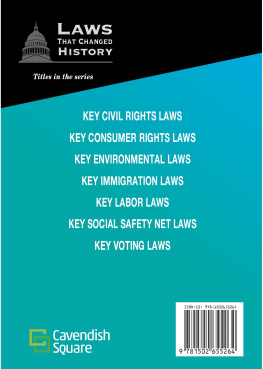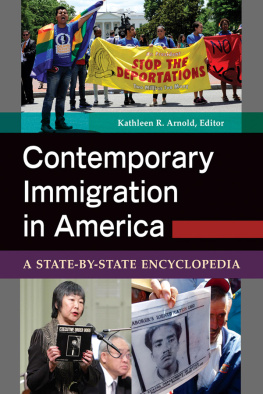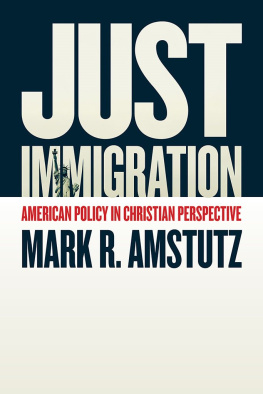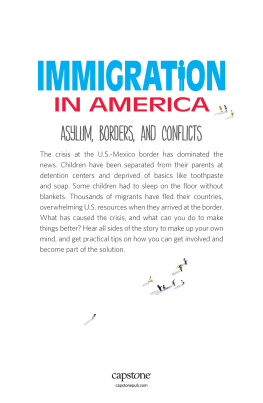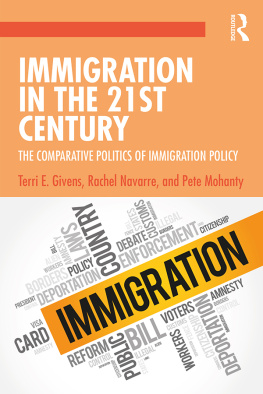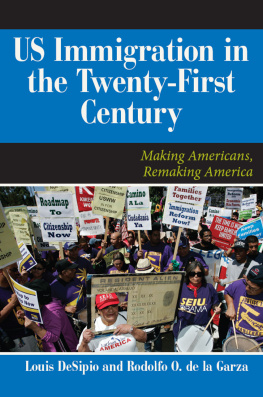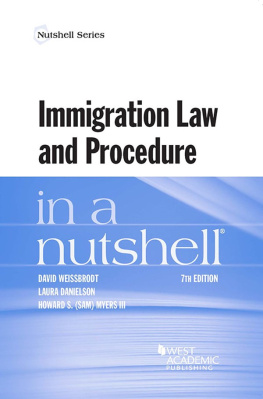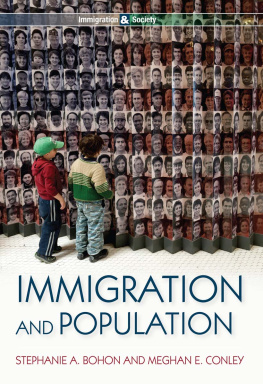Konda - Immigration Fraud: Fixing Loopholes in Immigration Law
Here you can read online Konda - Immigration Fraud: Fixing Loopholes in Immigration Law full text of the book (entire story) in english for free. Download pdf and epub, get meaning, cover and reviews about this ebook. City: Sheridan;WY, year: 2018, publisher: Freedom View Publishing LLC, genre: Politics. Description of the work, (preface) as well as reviews are available. Best literature library LitArk.com created for fans of good reading and offers a wide selection of genres:
Romance novel
Science fiction
Adventure
Detective
Science
History
Home and family
Prose
Art
Politics
Computer
Non-fiction
Religion
Business
Children
Humor
Choose a favorite category and find really read worthwhile books. Enjoy immersion in the world of imagination, feel the emotions of the characters or learn something new for yourself, make an fascinating discovery.
Immigration Fraud: Fixing Loopholes in Immigration Law: summary, description and annotation
We offer to read an annotation, description, summary or preface (depends on what the author of the book "Immigration Fraud: Fixing Loopholes in Immigration Law" wrote himself). If you haven't found the necessary information about the book — write in the comments, we will try to find it.
Konda: author's other books
Who wrote Immigration Fraud: Fixing Loopholes in Immigration Law? Find out the surname, the name of the author of the book and a list of all author's works by series.
Immigration Fraud: Fixing Loopholes in Immigration Law — read online for free the complete book (whole text) full work
Below is the text of the book, divided by pages. System saving the place of the last page read, allows you to conveniently read the book "Immigration Fraud: Fixing Loopholes in Immigration Law" online for free, without having to search again every time where you left off. Put a bookmark, and you can go to the page where you finished reading at any time.
Font size:
Interval:
Bookmark:
IMMIGRATION FRAUD: FIXING LOOPHOLES IN IMMIGRATION LAW
Copyright 2018 by Bharath Reddy Konda. All rights reserved. No Copyright is claimed by Freedom View Publishing LLC or the Author, in the text of statutes, federal government data including images, regulations, news publications, and excerpts from court opinions quoted within this book. Other than above specified, no part of this book may be reproduced or transmitted in any form or by any means, electronic or mechanical, including photocopying, recording, or by any information storage and retrieval system, without written permission from the publisher. This publication is intended to provide author opinion regarding the subject matter covered. It is sold with the understanding that the publisher or the author is not engaged in rendering legal professional services. If legal advice or other expert assistance is required, the services of a competent professional shouldbe sought. For information, address Freedom View Publishing LLC, 30 N. Gould St, Suite 4148, Sheridan, WY 82801 or email: query@freedomviewpublishing.com
PRINTED IN THE UNITED STATES OF AMERICA
Visit our website at www.freedomviewpublishing.com
Book Design by: Andrea Reider
Cover Design by: Kostis Pavlou
Publishers Cataloging-in-Publication data
Names: Konda, Bharath Reddy, author.
Title: Immigration fraud : fixing loopholes in immigration law / B.R. Konda.
Description: Includes bibliographical references and index. | Sheridan, WY: Freedom View Publishing LLC, 2018.
Identifiers: ISBN 978-0-9997268-1-5 (Hardcover) | 978-0-9997268-2-2 (pbk.) | 978-0-9997268-3-9 (ebook) | LCCN 2017964181
Subjects: LCSH FraudUnited StatesPrevention. | Immigration consultants MalpracticeUnited States. | Emigration and immigration lawUnited States. | BISACLAW / Emigration & Immigration | POLITICAL SCIENCE / Public Policy / Immigration
Classification: LCC KF4819.3 .K66 2018 | DDC 342.73/082dc23
DEDICATION
This book is dedicated to all the advocates who want to eradicate fraud in the Immigration System of the United States




T he most recent major immigration reforms happened in the 1990s, with lot of special-interest immigration laws attached. But as it stands, the immigration system is unworkable, obsolete, and subject to easy exploitation. This book will highlight these abuses and offer suggestions for reform.
Lack of enforcement of immigration laws and giveaways of immigration-related benefits were rampant between 2010 and 2016. The benefits to the United States of such permissiveness are not obvious. Unfortunately, the figures on illegal immigration, drugs seized at the border, drugs flowing into the country, drug-related deaths, nonimmigrant visa entries, and the skyrocketing immigrationbenefits granted between 2010 and 2016 reflect a sharp upward trend.
The direction in change of policy and the level of fraud committed by applicants, and, in some rare cases, lawyers, all point to the failure to properly enforce the immigration laws of the United States. If these problems continue, the United States will ultimately no longer be economically recognizable as such. I hope this book raises awareness of the truth, because exposing fraud in the system is in our nations best interests. If this book brings some meaningful changesat leastat the administrative level, if not the legislative levelI will have accomplished my purpose in writing a book about immigration.
Please note that nothing in this book should be construed as legal advice to anyone. Your reading of this book does not form an attorneyclient relationship with me, and you should consult a lawyer with any questions pertaining to your situation.

W here do I start describing the legal con inflicted by the immigration law on the American welfare system? Imagine a country whose last major immigration reform was in 1990, and which heavily favors relatives of citizens and permanent residents regardless of education or job skills. Assume also that it loosens the English-language-proficiency requirement for permanent residency and, ultimately, for citizenship. Twenty-seven years later, we will find a great disparity between the wages earned by the low-skilled foreign-born immigrants and skilled workers. Immigration by chains based on family relationship is out-of-date and has a devastating ripple effect on the current immigration system, ultimately leading to high socioeconomic disparity and the weakening of the social safety nets meant for indigent natural-born citizens.
Immigrants who enter the United States legally and become citizens after five years of stay can sponsor their relatives. Relatives means children and siblings and their spouses. Once they become U.S. citizens, they, in turn, sponsor their relatives. This means that the entire extended family immigrates within a few years.
The figure on the next page illustrates the Infinite nature of the chained immigration system. Currently, there is no vetting procedure to assess the skills of these immigrants. If the sponsored immigrant is related to the US Citizen, they can be brought into the USA for Permanent Residence, Period!
For illegal immigrants, the chained infinite loop is slightly different. If an illegal immigrant enters the United States illegally or overstays their visa, they are violating U.S. immigration laws. But the children born to these illegal immigrants become citizens by birth. These citizens can sponsor their relatives in the same fashion as the citizen who has lawfully entered, and remained in the United States.

Figure 1: Infinite Chain of Naturalized U.S. Citizen relatives that can be Sponsored
If the illegal immigrant parent of a U.S. citizen is deported, through proper procedure such as through Immigration Court Order, then that parent is barred from re-entering the United States for ten years.
However, if the parent chooses arbitrary timing of the deportation or to surrender to the authorities for deportation, they could choose to wait until after the child reaches their teenage years. Once the child reaches the age of twenty-one, the child can sponsor anyone, if they are related and legally present. In the above example, the child could sponsor the undocumented parent after the mandatory ten years. The figure in the next page illustrates chained migration for Illegal Immigrants. Therefore, the cost of entering the United States illegally is not high, when you compare the benefits that can be garnered later by the family-based immigration system!

Font size:
Interval:
Bookmark:
Similar books «Immigration Fraud: Fixing Loopholes in Immigration Law»
Look at similar books to Immigration Fraud: Fixing Loopholes in Immigration Law. We have selected literature similar in name and meaning in the hope of providing readers with more options to find new, interesting, not yet read works.
Discussion, reviews of the book Immigration Fraud: Fixing Loopholes in Immigration Law and just readers' own opinions. Leave your comments, write what you think about the work, its meaning or the main characters. Specify what exactly you liked and what you didn't like, and why you think so.

